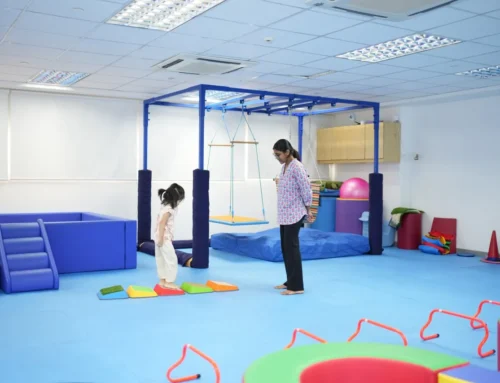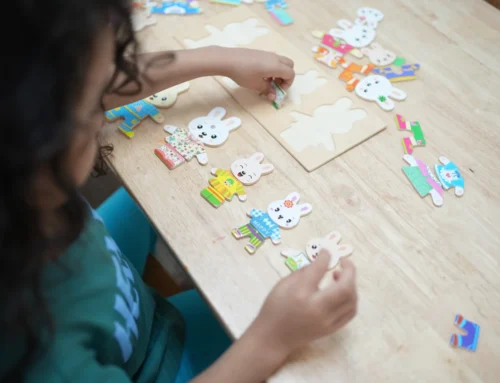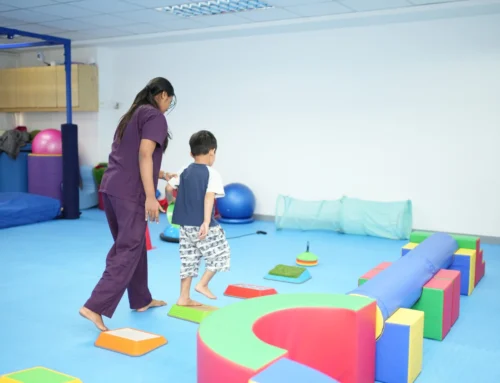In today’s classrooms across Cambodia, many children struggle to follow instructions, complete multi-step tasks, or stay focused for long periods. These challenges often stem from difficulties with working memory and attention — two key pillars of executive functioning. At OrbRom Center in Phnom Penh, our occupational therapy programs are designed to strengthen these essential cognitive skills through engaging, play-based, and evidence-based activities that help children thrive at home and in school.
Understanding Working Memory and Attention
Working memory is the mental workspace that allows children to hold and manipulate information for short periods. It’s what helps a child remember a teacher’s directions or recall the steps to complete a puzzle. Attention, on the other hand, is the ability to focus on a task, ignore distractions, and sustain concentration over time.
When children experience challenges in these areas, they may appear inattentive, easily distracted, or forgetful — even when they’re trying their best. This can impact their academic performance, social interactions, and self-confidence. Through occupational therapy, these skills can be trained and improved using practical, engaging, and developmentally appropriate methods.
To explore the foundations of therapy, read What Is Occupational Therapy and How Can It Help Your Child?.
How Occupational Therapy Builds Working Memory
1. Play-Based Cognitive Exercises
Children learn best through play. Occupational therapists use structured games and activities that strengthen memory pathways. For example, memory matching cards, sequencing tasks, and storytelling activities help children retain and process information more effectively.
These enjoyable exercises enhance both visual and auditory working memory, helping children remember instructions and details more accurately in classroom settings.
2. Multi-Step and Sequencing Tasks
Therapists often design step-by-step activities like cooking, crafts, or obstacle courses that require children to remember a sequence of actions. These activities build not only working memory but also planning and organizational skills. When a child recalls the steps needed to complete a project, they’re practicing the same mental processes required to complete school assignments or follow daily routines.
Learn more about how structured activities enhance cognitive development in Occupational Therapy Techniques for Children with Developmental Delays.
How Occupational Therapy Improves Attention
1. Sensory Regulation and Focus Training
Many children in Phnom Penh classrooms struggle to maintain attention because of sensory sensitivities — noises, textures, or bright lights can be overwhelming. Occupational therapy helps regulate sensory input through calming activities such as swinging, deep-pressure play, or heavy work exercises.
These sensory integration strategies help children stay alert and organized, leading to better focus in learning environments.
Find more about these techniques in Sensory Integration Therapy: What Is It and How Does It Work?.
2. Building Sustained and Selective Attention
Therapists also use gradual focus-building exercises. For instance, children may start with short activities that require brief focus and gradually extend to longer, more complex tasks. This step-by-step approach builds endurance for attention — a vital skill for classroom learning, reading, and test-taking.
When combined with individualized attention plans, occupational therapy can transform learning experiences for children with ADHD, autism, or developmental delays. You can explore more in How Occupational Therapy Helps Children with ADHD Stay Focused.
Real-World Applications in Cambodian Classrooms
In schools across Cambodia, including Phnom Penh, teachers often notice students who start strong but quickly lose focus or forget instructions halfway through an activity. These students may not have behavioral issues — they simply need structured support to improve memory and concentration.
At OrbRom Center, our occupational therapists collaborate with teachers to integrate sensory breaks, visual supports, and structured classroom routines that reinforce learning and help children apply therapy strategies in real-life settings.
This integrated approach ensures that improvements in therapy are reflected in the classroom — leading to better performance, more independence, and increased confidence in learning environments.
Personalized Support at OrbRom Center
Every child learns differently. That’s why at OrbRom Center, we design individualized occupational therapy programs that target each child’s cognitive and sensory needs. Our team combines activities that build attention, memory, and focus with play-based interventions to make learning enjoyable and meaningful.
We also work closely with parents through guided home activities, ensuring that therapy progress continues outside of sessions. Many families pair occupational therapy with speech therapy or special needs intensive intervention for comprehensive developmental support.
Discover how we support children’s attention and executive functioning in Building Focus and Executive Functioning Through Occupational Therapy in Phnom Penh.
Conclusion: Strengthening the Mind for Lifelong Learning
Improving working memory and attention through occupational therapy empowers children to think more clearly, focus longer, and manage their learning tasks independently. At OrbRom Center in Phnom Penh, our goal is to help every child reach their potential through personalized, evidence-based therapy that nurtures both the brain and the heart.
To learn how your child can benefit, visit our Occupational Therapy page or schedule a developmental assessment today.
We are the only Preschool specialized on children with special needs in PhnomPenh.
- Internationally qualified teachers
- Cambodia’s largest sensory room
- Outdoor swimming pool
- Covered outdoor playground
📞 Phone: 077.455.993
Telegram Link: https://t.me/OrbRom





